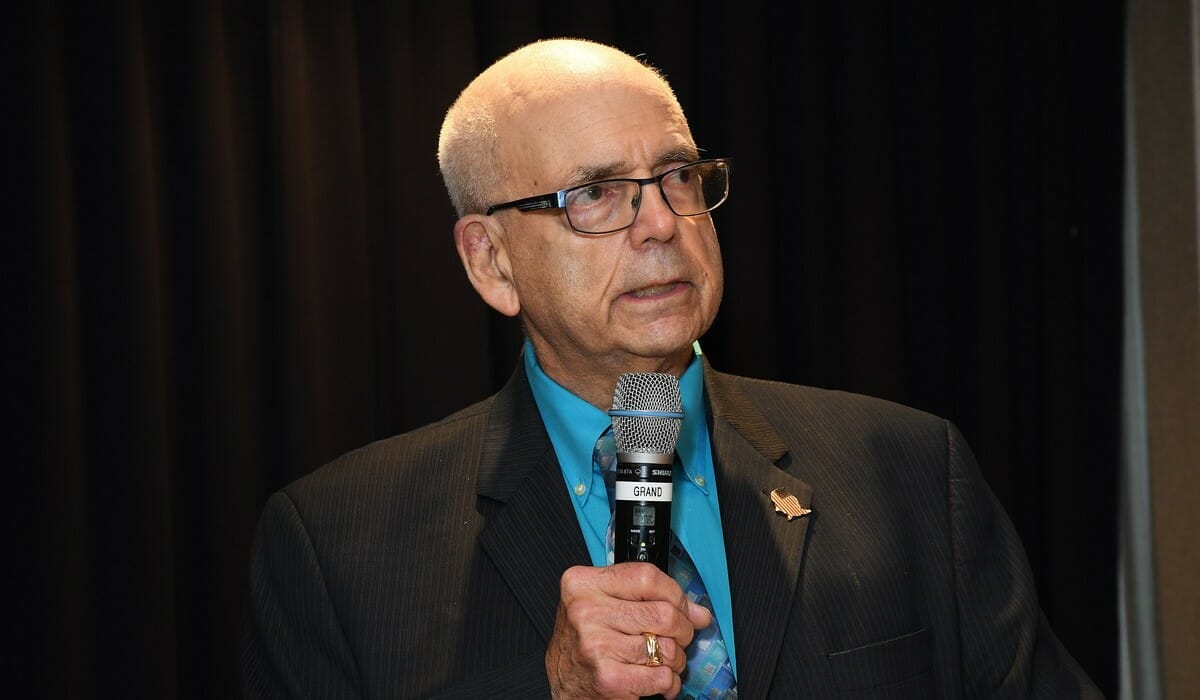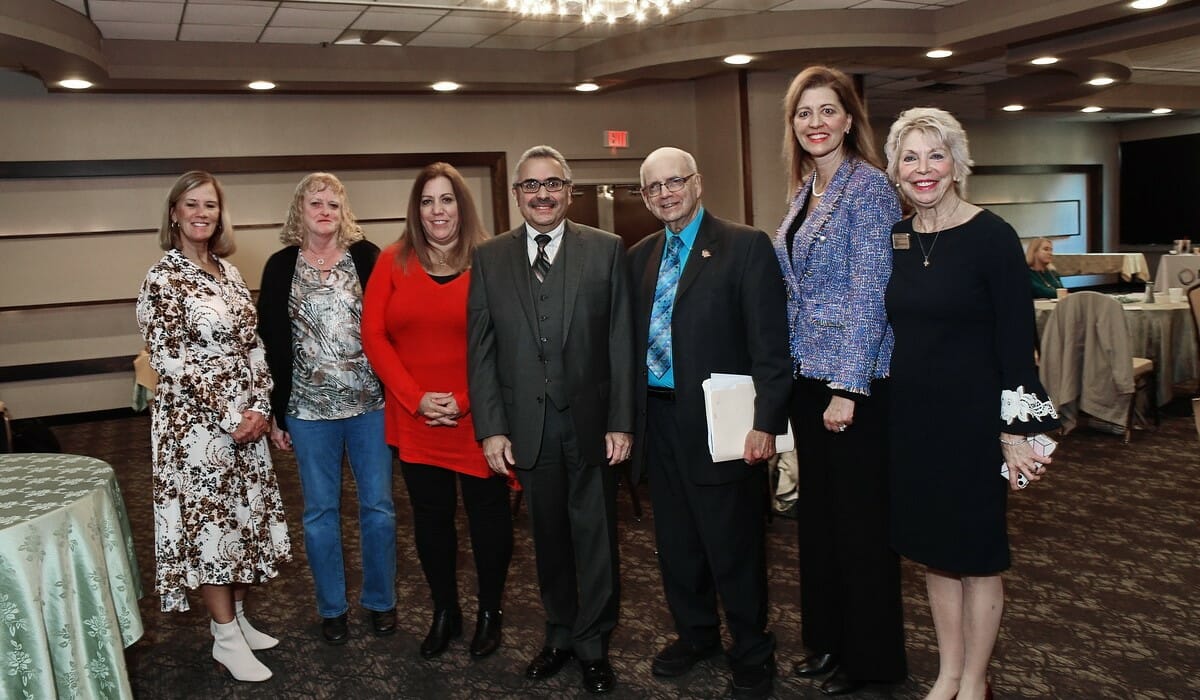Retired City Planner and Economic Developer Gives a Helping Hand to Grandparents Raising Grandchildren

Meet Daily Point of Light Award honoree Howard Grossman. Read his story and nominate an outstanding volunteer or family as a Daily Point of Light.
Howard Grossman has eight grandchildren and three daughters of his own. He’s had a long and impressive career in city planning, working for the Economic Development Council, creating a consulting business and leading Jewish Family Services of Greater Wilkes-Barre, all of which have made him deeply ingrained in his wider community. Now, working part-time at the Pittston Memorial Library as the fundraising director, he considers himself semi-retired.
He spends a large part of the rest of his time fighting for grandparents who have become the primary caregivers of their grandchildren with his organization, Grandparents Raising Grandchildren, also known as Northeastern Pennsylvania Intergenerational Coalition (NEPA). It’s comprised of 42 entities, mostly nonprofits involved in human services or health. Howard has spent the last 17 years serving families in the region and has served as the Chair since 2004.
With 21,000 grandparent-led families in northeastern Pennsylvania and over 90,000 in the state as a whole, the need for support continues. Two and a half million families are in the situation nationally. Howard and his coalition are connecting newly-made caregivers with the education and resources they need to raise their grandkids to be strong, smart and productive members of their communities.
What inspires you to volunteer?
I’ve been a volunteer my whole life, my whole career, and I probably have served on 125 nonprofit boards and been president of many of them. In one year, while I was working full time, I was president of six nonprofits simultaneously. That’s just me. That’s part of my life.
Describe your volunteer role with Grandparents Raising Grandchildren.
One part of the role is fielding calls and emails from grandparent families that have suddenly found themselves in this kind of situation. Sometimes, it’s not the grandparent. We don’t turn them away if it happens to be another relative. We try to help them as well.
They often don’t realize they need to learn about the educational system that exists today, not when they or their kids went to school. They also need information about health and other things that are important in raising a youngster.
I chair monthly Coalition meetings, help develop support groups—I run one at the library where I work—secure grants, plan and facilitate an annual conference, add new members to the coalition and focus on PR and activities to promote our interests.
What were or are some of the biggest challenges of your work?
I think some of the biggest challenges deal with the fact that most of these families are low-income, and they don’t necessarily have the ability to handle the financial situation of raising grandchildren. The first family I ever worked with in this region had five youngsters. The grandmother moved from Delaware into our region, and she was very involved in raising them.
Unfortunately, she has now passed away. That creates another issue. What happens to these youngsters when the family can’t raise them anymore? That’s a question that came up at a couple of our meetings, and I don’t have a good answer for that yet.
What have you learned through your experiences as a volunteer?
I’ve learned to listen to what the grandparent has to say. A lot of times in the phone call or email, I ask them questions about who they’re raising. Are they doing well in school? What kinds of problems are you facing? And so forth. It’s a learning experience, and we try to bring these issues before the coalition.
I get a lot of insight out of learning what goes on in these different family situations. Even though I’m not raising any of my grandchildren, we help our daughters raise them, in a sense, when they need help.

Are there any future partnerships, programs or events you are excited about?
Fifteen or 16 years ago, we started an annual conference. In the first couple of years, we had around 280 people attend. The last two that we had prior to the pandemic, there were over 200 people attending plus 40 resource tables. And in 2020, we had it virtually.
They bring a lot of folks together, and the grandparents learn a lot. We have agencies set up resource tables with literature. It’s an all-day event with lots of speakers who have helped develop different programs and who offer education and support to families with legal challenges.
This year, it’s on October 20 at The Woodlands, a hotel-resort right outside of Wilkes-Barre, so it’s easy to get to, and we put a lunch together. Thanks to sponsors, we don’t charge grandparents anything to attend.
Why do you think it’s important for others to get involved?
When I was living in King of Prussia, I was involved with the Institute of Service Learning in the Philadelphia area, and I believe strongly in the volunteerism community. Being a volunteer is very important to community life at the county level, the state level and the federal level.
What do you want people to learn from your story?
There is a grandparent community of large consequence across the United States, and certainly across Pennsylvania. I want people to know how significant this community is and that it is growing in size and in the kinds of issues they face.
Do you want to make a difference in your community like Howard? Find local volunteer opportunities.
